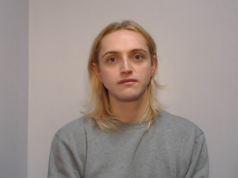In the past week, platforms including Facebook and Twitter have upped the censorship on so-called ‘misinformation’
Across the world, #savethechildren that had begun to go viral was mysteriously banned by Big Tech Facebook. The hashtag, which brought light to the child abuse and sexual exploitation crisis, is in support of a grassroots movement to expose abuse and trafficking centred in the US. The group had organised peaceful marches across the United States, but articles reporting on this have been banned.

Facebook has not made the ban official and has yet to provide an official rationale.
“We’re mad [and] tired of people looking the other way,” says Kayla Gitchel, who helped organise a Save the Children march in Redding, California.
“This has been brushed under the rug for way too long. We’re here to make some noise. We’re here to make people notice. Because it’s about time we stand up and do something for our children.”
This comes after Facebook has censored over 100 million user posts for sharing what Facebook has deemed to be health ‘misinformation’.

Creative Commons Attribution-Share Alike 2.0 Generic
Facebook applies warning labels to posts deemed questionable, in order to avoid scrutiny over their restrictions on freedom of speech. However, it has been previously been revealed that it has the effect of dissuading 95% of clicks, which is virtually equal to deleting content.
Zuckerberg responded to the censorship of the controversial and topical pharmaceutical chloroquinine by saying:
“We do not want to become the arbiters of truth. I think that would be a bad position for us to be in and not what we should be doing… but on specific claims, if someone is going to go out and say that hydroxychloroquine is proven to cure COVID, when in fact it has not been proven to cure COVID, and that that statement could lead people to take a drug that in some cases, some of the data suggests that it might be harmful to people, we think that we should take that down.”
Facebook is open about its reliance on the Chinese-affiliated World Health Organisation for its fact-checking, despite criticism of politicisation and bias.
Twitter is also not innocent in the war on information, after announcing that they would censor over 150,000 accounts that expressed support for the Qanon movement and President Trump just months before the critical 2020 US election.
Although the Qanon conspiracy is not widely and conventionally believed, there is a real possibility of more people being inclined to believe it if Twitter enacts this sitewide purge.



